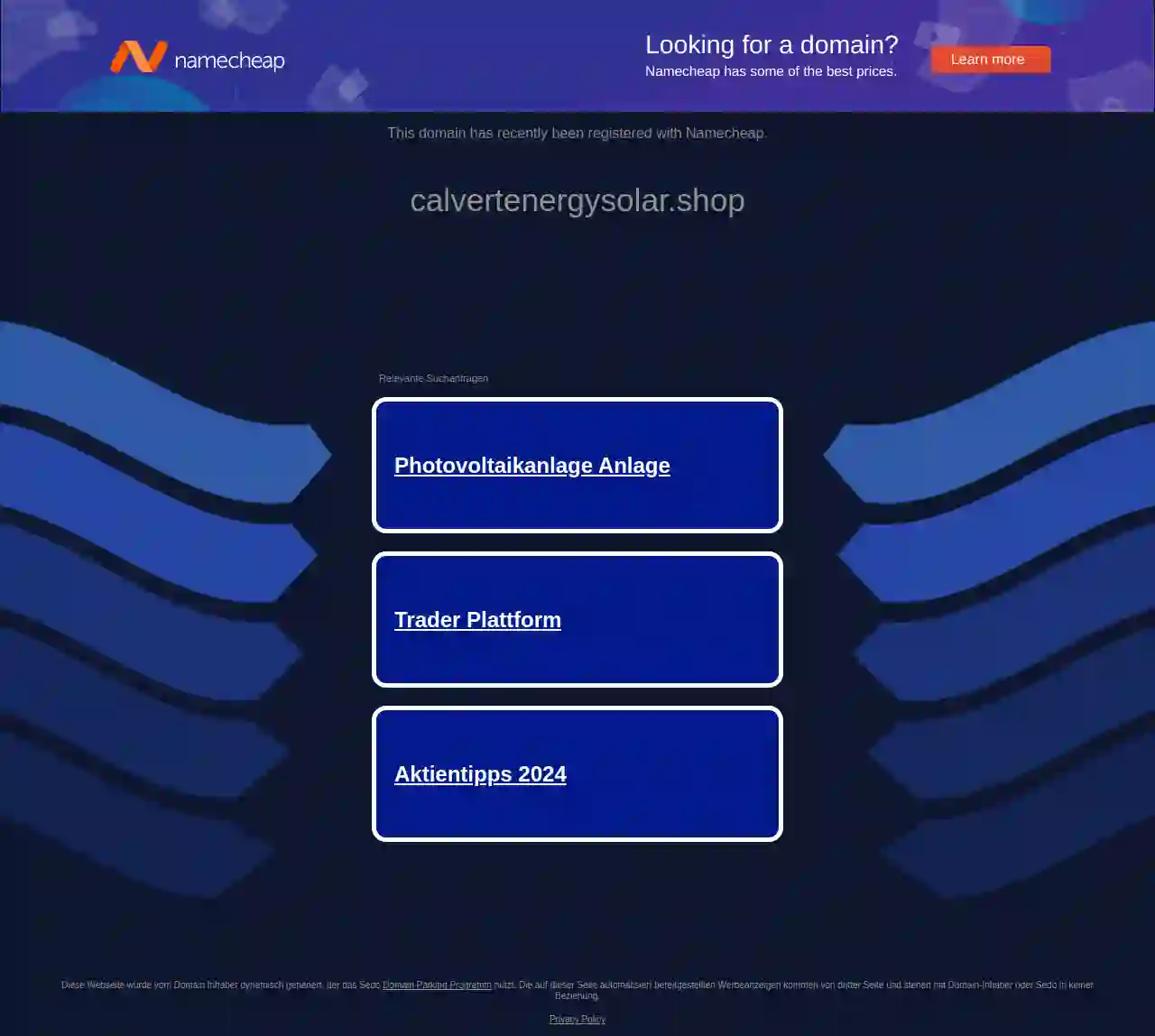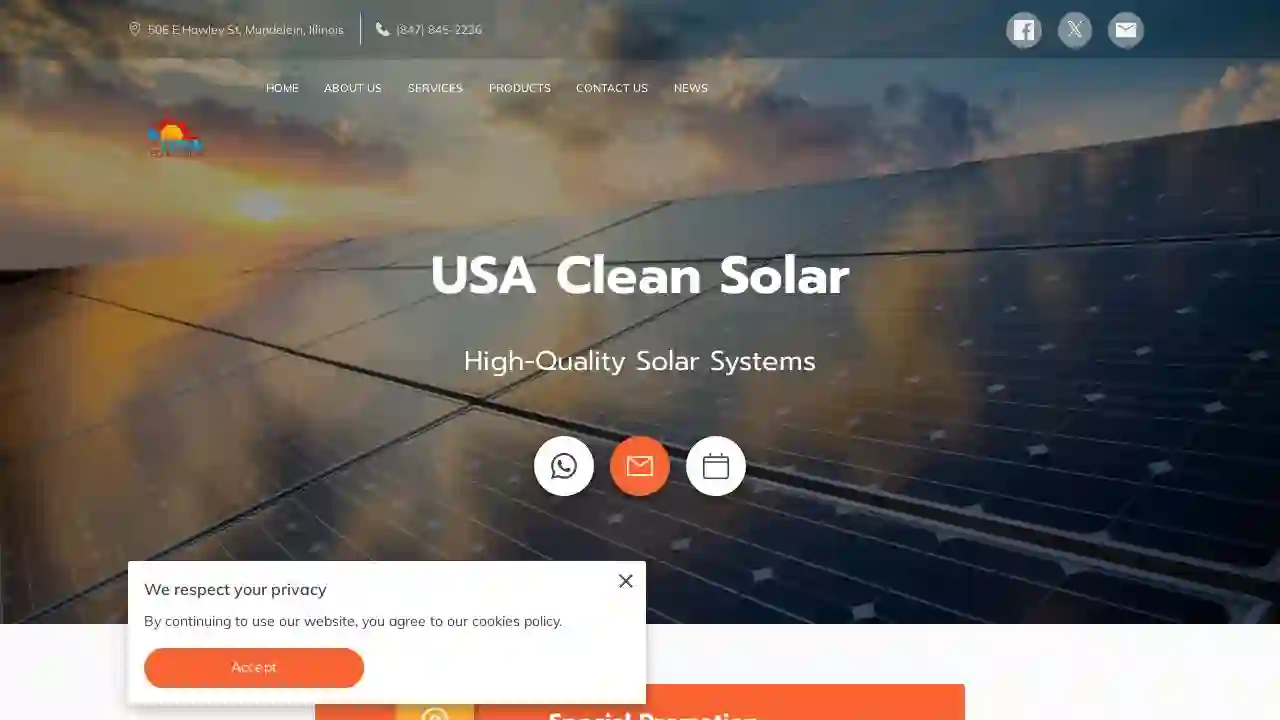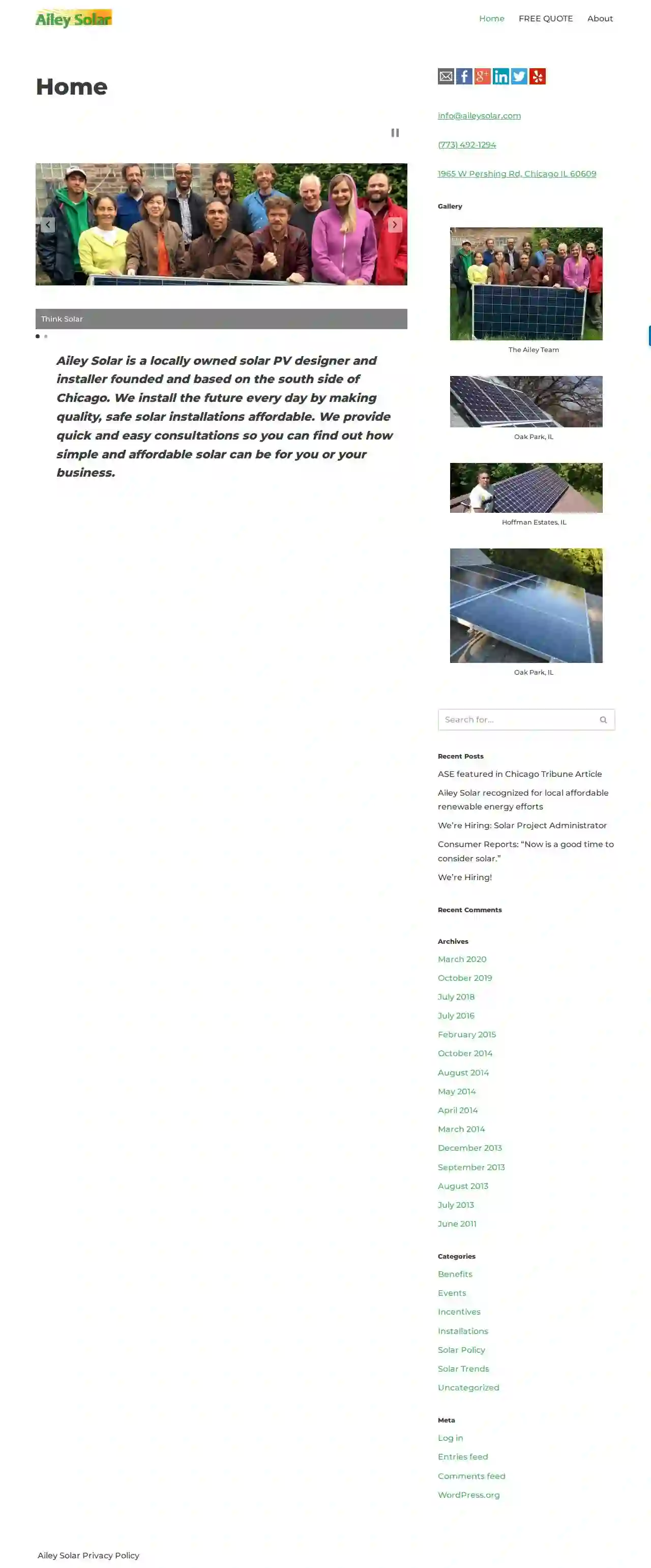Solar Installers Hillsboro
Best Solar Contractor in Hillsboro
Get multiple Solar Panels For Homes quotes for your project today! Compare profiles, reviews, accreditations, portfolio, etc... and choose the best deal.

Solar Business
Beverly Hills, CA, 123 Solar Way, 90210, USAt Powur, we are dedicated to providing sustainable energy solutions that empower individuals and communities. Our mission is to accelerate the adoption of renewable energy through innovative technology and exceptional customer service. Our team comprises experienced professionals with a shared vision of a greener future.
- Services
- Why Us?
- Accreditations
- Our Team
- Testimonials
Get Quote
Radiant Solar
52 reviews2012 Tin Cup Rd Unit B, PO Box 343, Mahomet, 61853, USRadiant Solar is a solar company in Champaign County serving Central Illinois. A Veteran owned and family operated business , we aim to provide affordable, quality, green energy solar panel installations to our customers by cutting out the middle-man. Not only saving you money now, but for years into the future.
- Services
- Why Us?
- Accreditations
- Gallery
Get Quote
Tesla Solar Chicago
3.52 reviewsChicago, USThis domain has recently been registered with Namecheap. calvertenergysolar.shop This webpage was dynamically generated by the domain owner using the Sedo Domain Parking Program. The automatically generated advertisements on this page come from third parties and are not associated with the domain owner or Sedo.
- Services
- Why Us?
- Gallery
Get Quote
Nelnet Renewable Energy
4.6140 reviews230 N. Hicks Pl., Palatine, 60067, USNelnet Renewable Energy is a trusted partner in helping others achieve their sustainability and investment goals. They offer a vast portfolio of solutions to help support commercial and industrial customers, developers, investors, and CleanTech and ClimateTech innovators in meeting their renewable energy goals.
- Services
- Why Us?
- Accreditations
- Our Team
- Testimonials
- Gallery
Get Quote
StraightUp Solar of Bloomington
4.959 reviews505 N Main St, Suite A, Bloomington, IL, 61701, USStraightUp Solar is a solar installation company in Bloomington, IL, that believes in empowering neighbors to take control of their energy with clean solar options. With over 2,800 solar panel arrays installed under the same ownership for over a decade, their team of values-driven, experienced, and licensed professionals manage every aspect of residential or commercial solar installation projects, from design to build to maintenance.
- Services
- Why Us?
- Accreditations
- Our Team
- Testimonials
- Gallery
Get Quote
USA Clean Solar
11 reviews506 E Hawley St, Mundelein, Illinois, 60060, USUSA Clean Solar is a family-owned business based in Mundelein, Illinois, providing high-quality solar panel installations for both residential and commercial sectors. They offer cost-effective components and premium installation services tailored to meet specific customer needs. Their team of highly motivated and knowledgeable solar panel installers ensures efficient service and high-quality products.
- Services
- Why Us?
- Gallery
Get Quote
Iconic Energy
4.663 reviewsRockford, IL, USA, 4617 American Road, 61109, USIconic Energy is a Midwest solar installation company based in Rockford, Illinois. Our main focus is to provide clean affordable electricity to homes and businesses in the Midwest.
- Services
- Why Us?
- Accreditations
- Our Team
- Testimonials
- Gallery
Get Quote
Ailey Solar Electric, Inc.
4.738 reviewsSuite 100, Chicago, IL, 123 Solar Street, 60601, USAiley Solar is a locally owned and operated business that has been providing solar solutions to Chicagoland residents and businesses for over 17 years. They offer a range of services including residential, commercial, and non-profit solar installations. Ailey Solar is committed to powering homes and businesses sustainably and has a team of experts who handle every step of the solar journey in-house, ensuring seamless quality and customer satisfaction.
- Services
- Why Us?
- Accreditations
- Our Team
- Testimonials
- Gallery
Get Quote
Simply Solar Illinois
4.816 reviewsSimply Solar Illinois, Bethalto, Illinois, 123 Solar Lane, 62010, USSimply Solar Illinois specializes in providing customized solar solutions for residential, commercial, and agricultural properties. Our team works closely with clients to understand their energy requirements and design a solar system that maximizes energy savings. We handle everything from initial assessment and design to installation and ongoing maintenance. By switching to solar energy, clients can significantly reduce their operating costs, enhance their sustainability efforts, and take advantage of various tax incentives and rebates.
- Services
- Why Us?
- Accreditations
- Our Team
- Testimonials
- Gallery
Get Quote
Advanced Power USA
514 reviews123 Main St, Suite 100, Aurora, 60001, USAdvanced Power USA is a company that specializes in providing clean, renewable energy to homeowners through solar power. They offer a range of services including installation, maintenance, and consultation to help homeowners make the switch to solar energy. Their team consists of experienced professionals who are dedicated to providing high-quality service and ensuring customer satisfaction.
- Services
- Why Us?
- Accreditations
- Our Team
- Testimonials
- Gallery
Get Quote
Over 4,210+ Solar Installers on our platform
Our solar experts operate in Hillsboro & surrounding areas!
SolarCompaniesHub has curated and vetted the Best Solar Installers in Hillsboro. Find a reliable business today.
Frequently Asked Questions About Solar Installers
- Use a Directory Like SolarCompaniesHub: We connect you with pre-screened, qualified solar installers in your area.
- Check Online Reviews: Look for positive reviews on Google, Yelp, and other reputable sources.
- Ask for Referrals: Get recommendations from friends, family, or neighbors who have gone solar.
- Verify Credentials: Ensure the installer is licensed, insured, and certified by reputable organizations (e.g., NABCEP in the US).
- Get Multiple Quotes: Compare quotes from at least 3-4 installers to find the best value for your project.
- Ask Questions: Don't hesitate to ask installers about their experience, warranties, and the process they follow.
- Solar Panel Warranty: From the panel manufacturer, typically covering defects in materials and workmanship for 10-25 years. Some manufacturers offer performance guarantees, ensuring a certain level of energy output over time.
- Solar Installation Warranty: From the solar installer, covering the quality of the installation work for 1-10 years. This warranty protects you from leaks, faulty wiring, or other issues caused by improper installation.
How do I find a good solar installer near me?
What kind of warranty should I expect for my solar panel system?
Do I need planning permission to install solar panels in USA?
Can I go completely off-grid with solar panels?
How do I find a good solar installer near me?
- Use a Directory Like SolarCompaniesHub: We connect you with pre-screened, qualified solar installers in your area.
- Check Online Reviews: Look for positive reviews on Google, Yelp, and other reputable sources.
- Ask for Referrals: Get recommendations from friends, family, or neighbors who have gone solar.
- Verify Credentials: Ensure the installer is licensed, insured, and certified by reputable organizations (e.g., NABCEP in the US).
- Get Multiple Quotes: Compare quotes from at least 3-4 installers to find the best value for your project.
- Ask Questions: Don't hesitate to ask installers about their experience, warranties, and the process they follow.
What kind of warranty should I expect for my solar panel system?
- Solar Panel Warranty: From the panel manufacturer, typically covering defects in materials and workmanship for 10-25 years. Some manufacturers offer performance guarantees, ensuring a certain level of energy output over time.
- Solar Installation Warranty: From the solar installer, covering the quality of the installation work for 1-10 years. This warranty protects you from leaks, faulty wiring, or other issues caused by improper installation.